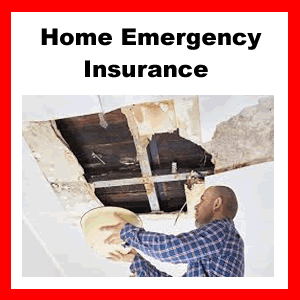Home Emergency Cover
Sun: Closed, Mon-Fri: 8 am-6 pm, Sat: 10 am-4 pm
355 Template Street San Francisco, California 94110
How to Protect Your Assets With Add-On Home Insurance Cover
Emma Ealingsworth

Homeowners in Vermont have a choice when it comes to purchasing Home Emergency Insurance. There are basically two different options you can select from when it comes to Home Emergency Insurance. In general, the higher you pay, the less coverage you receive. Stand-by-portable cover tends to be much more comprehensive - and much more expensive - than the full-fledged cover that you'll receive as an added add-on to your homeowners' insurance. Boilers and central heating appliances are also likely to be refused by insurers, usually from ten to fifteen years old. To get home emergency cover follow the link.
When it comes to Home Emergency Insurance, how do you know when and where you need it? A good Home Emergency Insurance policy gives you some peace of mind. For instance, if someone in your family is injured or sick and needs to get medical attention in the home, you don't have to worry about losing everything. You won't have to rent an extra room in case something happens to your home, or pay for a personal accident claim at the hospital. With stand-by policies, you will need to buy additional coverage, but that's still better than having to worry about losing everything because of a sudden mishap.
If you're thinking about buying a home emergency insurance policy, you should know about its various coverages. It usually covers damage due to fires, explosions, lightning strikes, and smoke damage. You can also get additional benefits if you've installed smoke alarms, security alarms, or carbon monoxide detectors. However, you might want to reconsider your inclusion of these add-ons if all you need to protect your home is the house itself - these coverages won't cover damages to fixtures inside the house.
The typical home insurance covers damage caused by natural disasters such as fires, earthquakes, storms, and hurricanes. You can choose to add additional items to the basic policy such as theft, vandalism, or malicious mischief. If you have an attached garage, this type of home cover might help you a lot in the event of a break-in. This is a separate home insurance policy that covers damage to the property due to a burglary. While this might be a good idea, you should consider the added cost of insurance for your garage.
A home emergency cover can also cover repairs to the property in the event of damage due to storm, fire, lightning, explosion, flood, earthquake, or other disasters. In many states, this type of policy also covers tenants if they are living in the property as their primary residence. Usually, this type of emergency policy covers only damage to the house, not to the building itself. If your landlord agrees, you may also be covered for expenses relating to alternative accommodation.
Most policies include coverage for damage caused by fires, explosions, floods, lightning, or gas leaks. Most policies also include coverage for medical expenses resulting from accidents, natural disasters, and medical malpractice. While these are some of the most common emergencies, there are others such as subsidence, explosion, and hot water leaks. In cases where the damage is substantial, the homeowner may need to get specialised professional assistance in order to get the property repaired.
Another type of home insurance cover is referred to as combined home insurance, which means that it covers the common dangers common to homeowners as well as the common dangers faced by others. For example, flooding and earthquake damage are common threats, which would usually be covered under separate policies. When you take out combined home insurance, you will receive a discount on the premiums. Similarly, if you take out an umbrella policy with similar companies, you may also receive discounts on your claim.
You can also add-in additional home insurance cover to your landlord's policy. For instance, many companies will offer a landlord's policy with a property inventory, which includes detailed information about the building. You can then add additional cover that would include items such as smoke alarms, fire extinguishers, and carbon monoxide detectors. Some companies may also provide further insurance benefits for tenants, such as adding accident cover to the landlord's policy, in order to protect the tenant's possessions.
For more details on home emergency cover go to https://row.co.uk/home-emergency-cover
